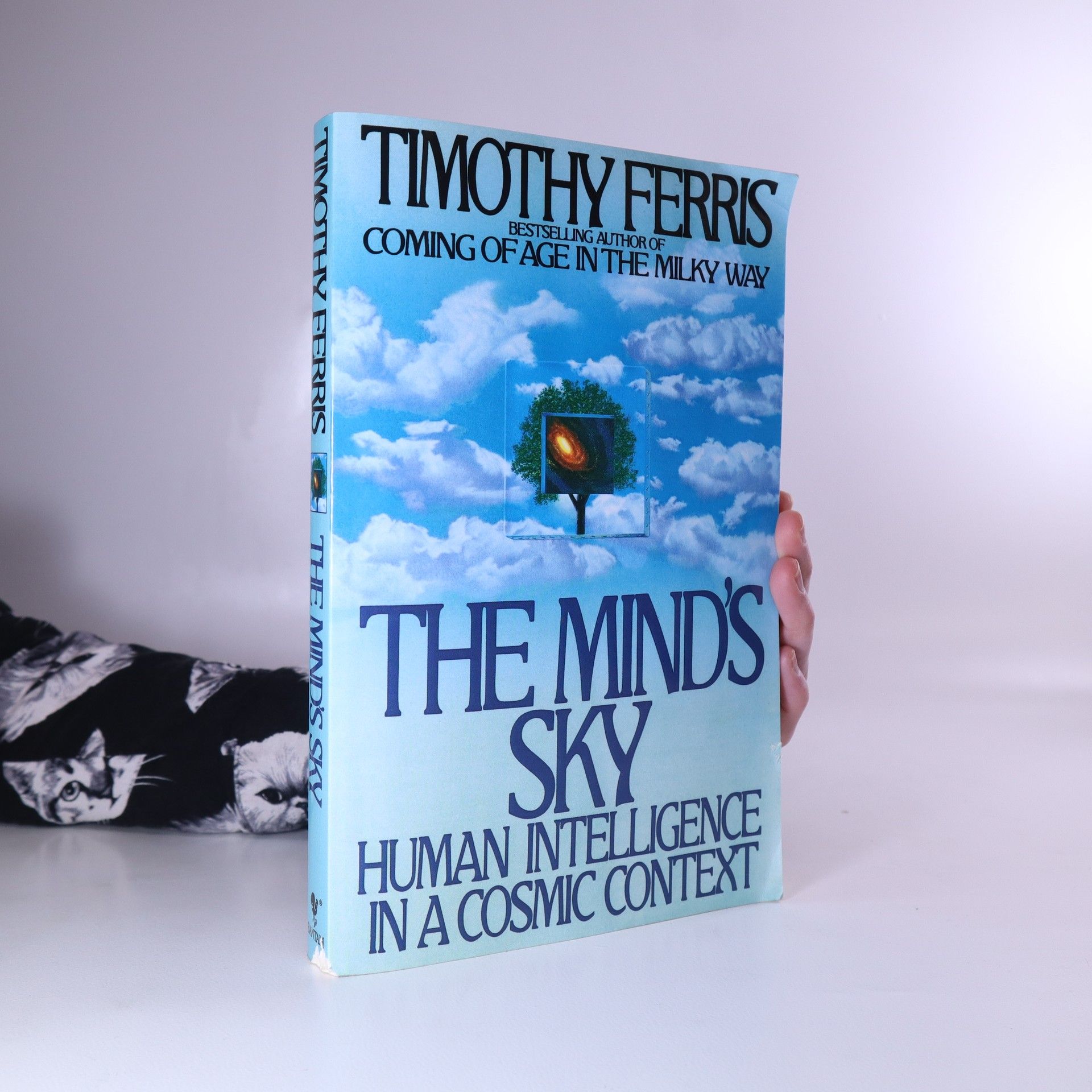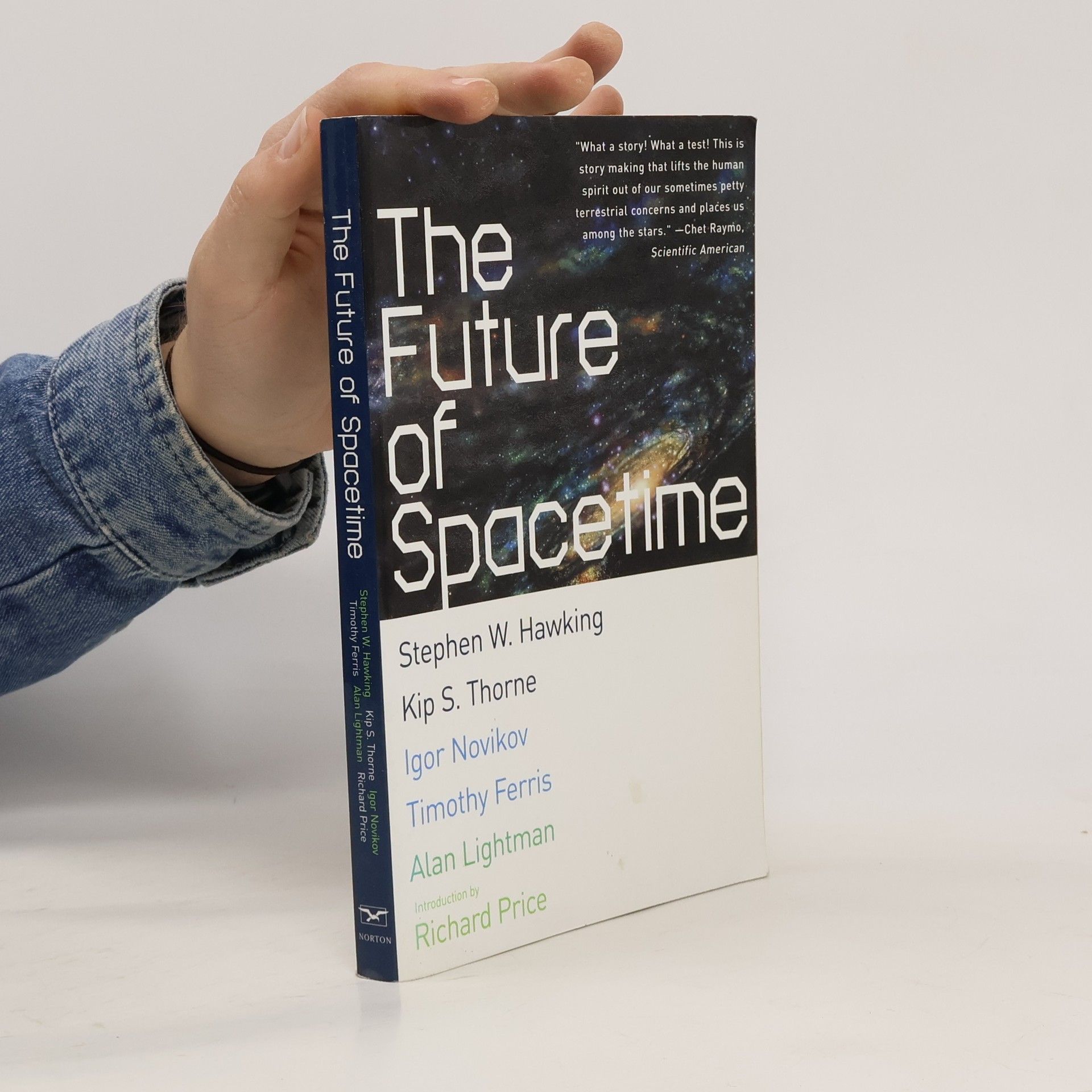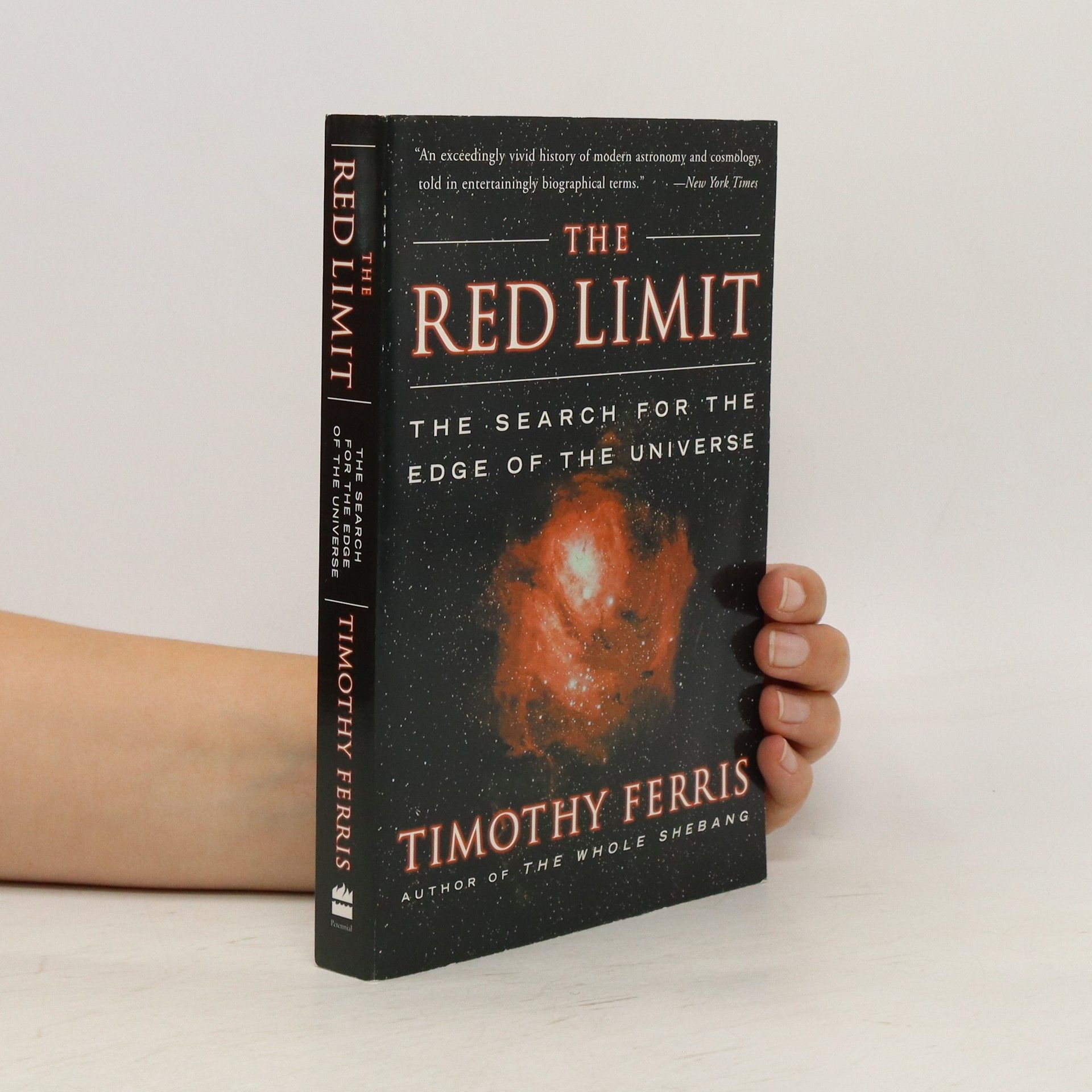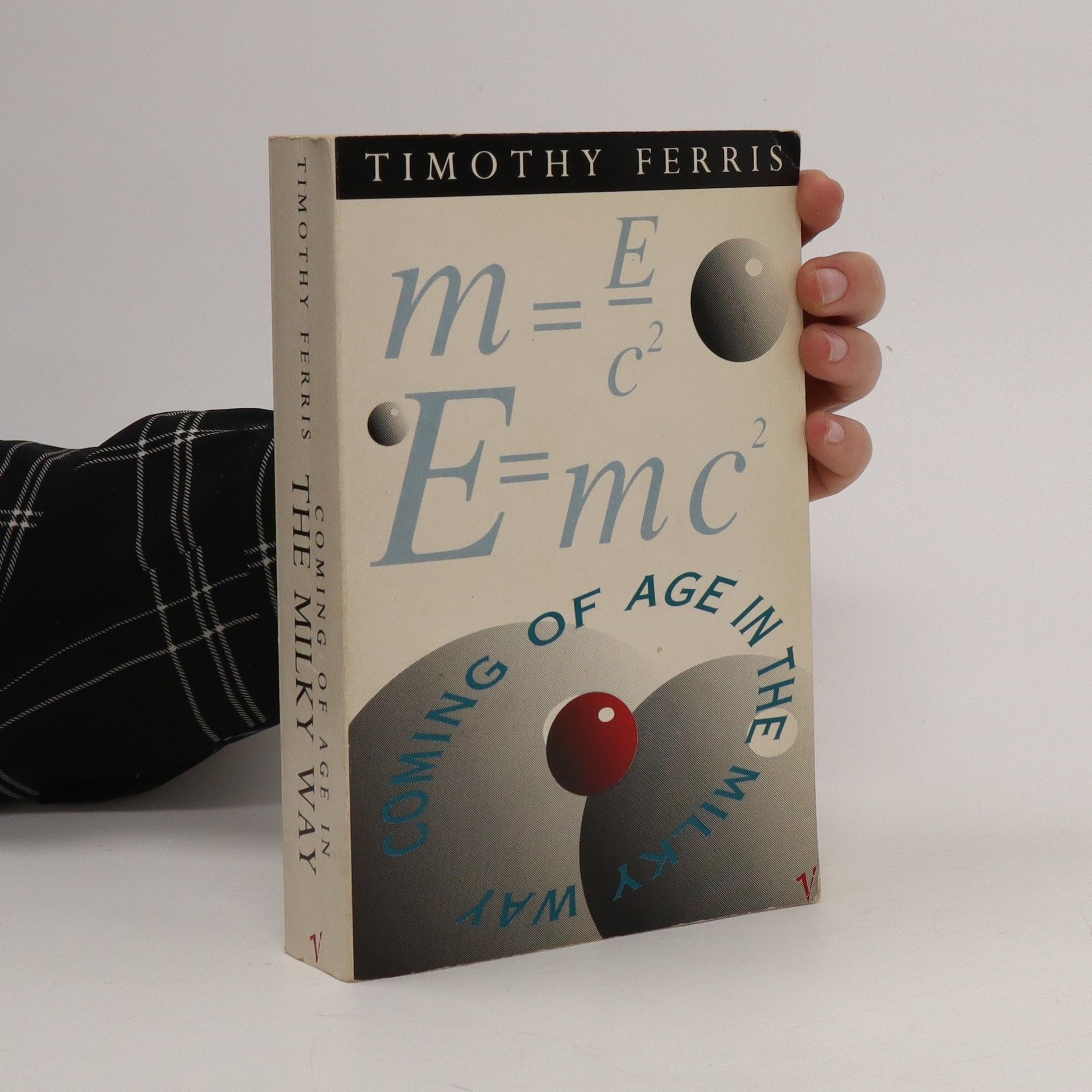From the second-century celestial models of Ptolemy to modern-day research institutes and quantum theory, this classic book offers a breathtaking tour of astronomy and the brilliant, eccentric personalities who have shaped it. From the first time mankind had an inkling of the vast space that surrounds us, those who study the universe have had to struggle against political and religious preconceptions. They have included some of the most charismatic, courageous, and idiosyncratic thinkers of all time. In Coming of Age in the Milky Way, Timothy Ferris uses his unique blend of rigorous research and captivating narrative skill to draw us into the lives and minds of these extraordinary figures, creating a landmark work of scientific history.
Timothy Ferris Livres
Timothy Ferris est un communicateur scientifique de renom dont l'œuvre considérable comprend douze livres, des centaines d'articles et d'essais, ainsi que trois documentaires primés. Il a été salué comme une voix prééminente dans l'écriture scientifique, recevant de nombreuses distinctions pour sa capacité à rendre les sujets complexes accessibles et attrayants pour un large public. Les écrits de Ferris abordent souvent le cosmos et la place de l'humanité en son sein, transmettant les merveilles de la science avec clarté et enthousiasme. Son approche distinctive en a fait l'une des figures les plus importantes de la vulgarisation scientifique.






The Red Limit
- 368pages
- 13 heures de lecture
Hailed by critics as a classic of modern science and awarded the American Institute of Physics Prize, this is the tumultuous tale of groundbreaking discoveries by a group of scientists whose rivalries and emotions played as important a role as their intellectual brilliance. Reprint.
Future of Spacetime
- 222pages
- 8 heures de lecture
This collection features insights from renowned physicists on the nature of spacetime, time travel, and the future of science. Richard Price introduces spacetime physics, while Stephen Hawking discusses the concept of chronology protection. Igor Novikov explores the possibility of altering the past, and Kip S. Thorne speculates on future scientific advancements. Timothy Ferris addresses the challenges of making science accessible to the public, and Alan Lightman reflects on the intersection of physics and literature, highlighting the role of physicists as storytellers.
The Science of Liberty
- 368pages
- 13 heures de lecture
“Ferris is a master analogist who conveys his insights on the history of cosmology with a lyrical flair.” — The New York Times Book Review In The Science of Liberty , award-winning author Timothy Ferris—called “the best popular science writer in the English language today” by the Christian Science Monitor and “the best science writer of his generation” by the Washington Post —makes a passionate case for science as the inspiration behind the rise of liberalism and democracy. In the grand tradition of such luminaries of the field as Bill Bryson, Richard Dawkins, and Oliver Sacks—as well as his own The Whole Shebang and Coming of Age in the Milky Way —Ferris has written a brilliant chronicle of how science sparked the spread of liberal democracy and transformed today’s world.
The Mind's Sky
- 300pages
- 11 heures de lecture
The bestselling author of Coming of Age in the Milky Way delivers fascinating essays on the human mind, the search for extraterrestrial (and thus nonhuman) intelligence, comet strikes as a source of species extinction, near-death experiences, apocalyptic prophecies, information theory, and the origin of laughter. Praise for The Mind’s Sky “It is a joy to read The Mind’s Sky. What a sense of humility in the face of mystery—the spirit of Ulysses, as Tennyson put it, determined ‘to strive, to seek, to find and not to yield’—and sense of poetry too!”—John Archibald Wheeler, physicist, Princeton University “A few chapters into this wonderful book I suddenly realized that I was taking wider views of my own mind’s sky than I have enjoyed in a long time. Ferris illuminates (among other matters) the mysteries of laughter, nirvana, common sense, and Joe Montana. He makes us think big thoughts.”—Jonathan Weiner, author of The Next 100 Years and Planet Earth “One of our best and most imaginative writers, Timothy Ferris has never been afraid to tackle big themes. The Mind’s Sky is a dazzling and provocative synthesis of inner and outer space. This book is sure to be as controversial as it is elegant.”—Dennis Overbye, author of Lonely Hearts of the Cosmos
From the prizewinning author who has been called "the greatest science writer in the world" comes this delightfully comprehensive and comprehensible report on how science today envisions the universe as a whole. Timothy Ferris provides a clear, elegantly written overview of current research and a forecast of where cosmological theory is likely to go in the twenty-first century. He explores the questions that have occurred to even casual readers -- who are curious about nature on the largest scales: What does it mean to say that the universe is "expanding," or that space is "curved"? -- and sheds light on the possibility that our universe is only one among many universes, each with its own physical laws and prospects for the emergence of life.
Budoucnost prostoročasu
- 175pages
- 7 heures de lecture
Krátký úvod do historie fyzikálních teorií spojených s prostoročasem od Richarda Price, teoretika z oddělení fyziky na University of Utah, připravuje jeviště pro vědecká objasnění a myšlenky známých vědců. Igor Novikov, ředitel Centra pro teoretickou astrofyziku v dánském NORDITA, pojednává o cestování v čase a objasňuje, jak se vyhnout paradoxům při cestování do minulosti. Stephen Hawking, profesor matematiky v Cambridge a jeden z nejznámějších vědců na světě, ukazuje, proč je takové cestování nemožné. Kip Thorne se pokouší cestovat do budoucnosti za pomoci astronomie gravitačních vln. Poslední dva eseje se poněkud odlišují od ostatních, protože nepodávají vědecká vysvětlení. Timothy Ferris, vynikající novinář a popularizátor vědy, vypráví, jak je nezbytné a zároveň obtížné popularizovat vědu. Alan Lightman, přední fyzik se zálibou v psaní, má zkušenost s vědeckou i uměleckou tvorbou, je oprávněn ve svém eseji srovnávat tyto dva rozdílné typy kreativity.
Všetko o vesmíre
- 416pages
- 15 heures de lecture
Je toho iste viac, než sa dá vmestiť do jednej knihy. Profesor Tomothy Ferris sa jednako pokúsil zostaviť akýsi prehľad, sumu najdôležitejších vedomostí. Jeho kniha sa napriek obsiahlosti témy a vysoko špecializovanej problematike súčasných kozmologických a astrofyzických teórií usadili na vrchných priečkach rebríčkov knižných bestsellerov a svojmu autorovi zabezpečila svetoznámosť.
Pohľad do tmy
- 436pages
- 16 heures de lecture
Autor sleduje hviezdy celý život, ale hĺbky vesmíru dostupné kedysi iba profesionálom, alebo dokonca nikomu, sú dnes na dosah pozorovateľom, ktorých motivuje vlastná zvedavosť. Mnohí z amatérov nachádzajú uspokojenie v radosti z estetiky kozmického divadla, iných väčšmi zaujíma, čo je tam "vonku"- čo vlastne predstavujú Saturn, planetárna hmlovina Prstenec, galaxia Strieborná minca alebo kopa galaxií v Súhvezdí Severná koruna...



